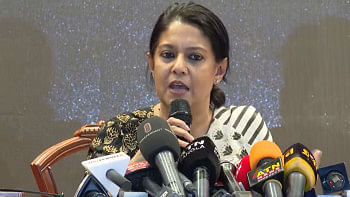Remembering the Forgotten Hero

Photos: Internet
In August, the Indian subcontinent was decisively divided after two hundred years of British rule. This division, the product of a long independence movement and bloody communal riots, gives birth to two of the world's most phenomenal nation states, India and Pakistan. Many leaders of the undivided India fought for the independence of Indian subcontinent from the colonial clutches of the British Empire. Most of the leaders such as Gandhi, Nehru and Jinnah fought for independence politically, through discussion and negotiation with the British government.
However, there was one Bengali leader who raised his own army and declared total war against the British Empire. During the Second World War he joined the axis forces to wipe out the British rule from India and his army fought against the British forces along with German and Japanese armies. The name of this unbending leader is Subhash Chandra Bose popularly known as Netaji Subhash Bose. With his famous army called Azad Hind Fouj (Indian National Army), he is the only Indian leader in 20th century who showed the valour of waging full scale war against the British occupancy in India demanding independent, undivided India.

Nevertheless, after the destructive defeat of the axis forces in the Second World War, his dream of liberating India through armed struggle was shattered. Subhash Bose was also mysteriously disappeared immediately after the war in August 19, 1945 exactly two years before the division, and independence of Indian subcontinent.
Subhash Bose was born on 23rd January, 1897 in Cuttack, Orissa Division of Bengal province. Although studied in European institutions throughout his student life, he always nurtured highly nationalistic sentiments in his mind. He even assaulted one of his British professors for the latter's anti-Indian racist remarks. After completing his study at University of Cambridge, he rejected the offer to join the Indian Civil Service under the British government, and joined the independence movement instead.
Thanks to his dedication and charismatic personality, he soon became a very popular leader. In 1920, he was elected as the Mayor of Calcutta and was elected as the President of Indian National Congress. As the President of Congress, Bose demanded full autonomy and supported to use force against the British occupancy which was firmly opposed by the leaders like Gandhi and Nehru. In 1939 Bose was ousted from Congress leadership and British authority put him under house arrest.
However, as the Second World War broke out in 1939, Bose envisioned it as a chance to achieve India's liberty. He escaped from British captivity and flew to Germany in 1941 when Germany was fighting against the British forces. German leadership welcomed Bose and offered him support to raise an Indian army. Meanwhile, as the Japanese army was conquering Southeast Asia and captured Singapore from the British Empire, Subhash Bose moved to Singapore and reorganised 43,000 members to build a strong army popularly known as the Azad Hind Fouj. The army took part in different campaigns in Burma against the British forces.
Bose also formed Provisional Government of Free India in Japanese occupied Andaman Nicobar Islands. He collected taxes from the Indian inhabitants of Malaya, Singapore, Burma and Thailand to raise funds for his army. However, as the British army regained its force in the South-East Asian theatre of the Second World War, Azad Hind Fouj started to pull back with the retreating Japanese army. After the fall of Rangoon, all hopes of evicting British occupation from India were lost and Bose's Provisional Government of Free India lost its political entity.

Bose's last days are shrouded in mystery. As the Japanese forces were in full retreat, he moved to the heartland of the Japanese empire. Some say that while travelling to Japan, the Japanese plane carrying Bose and some of his workers crashed and Bose died instantly from the accident. Again, some other theories claim that Bose did not die and rather lived on but he was silenced by the independent Indian government. In fact, Narendra Modi's government in 2014 rejected the plea to declassify some top secret documents related to Bose apprehending that it would harm India's foreign relations. Again in April 2015, some declassified documents of Indian government revealed that Bose's family members in India were put under strict government surveillance.
At the time when India was being divided on the basis of religion and on the pretext of merciless communal riots, the Bengali leader Bose dreamed of an undivided, independent India. He did not agree to sit with the colonial rulers, who exploited the entire Indian subcontinent for more than 200 years, and then became the decision maker of India's borders. However, the course of history made him a tragic hero of India's struggle for independence despite the fact that he is the leader who fought unconditionally for the independence of India.


 For all latest news, follow The Daily Star's Google News channel.
For all latest news, follow The Daily Star's Google News channel. 



Comments